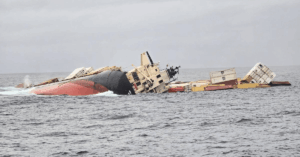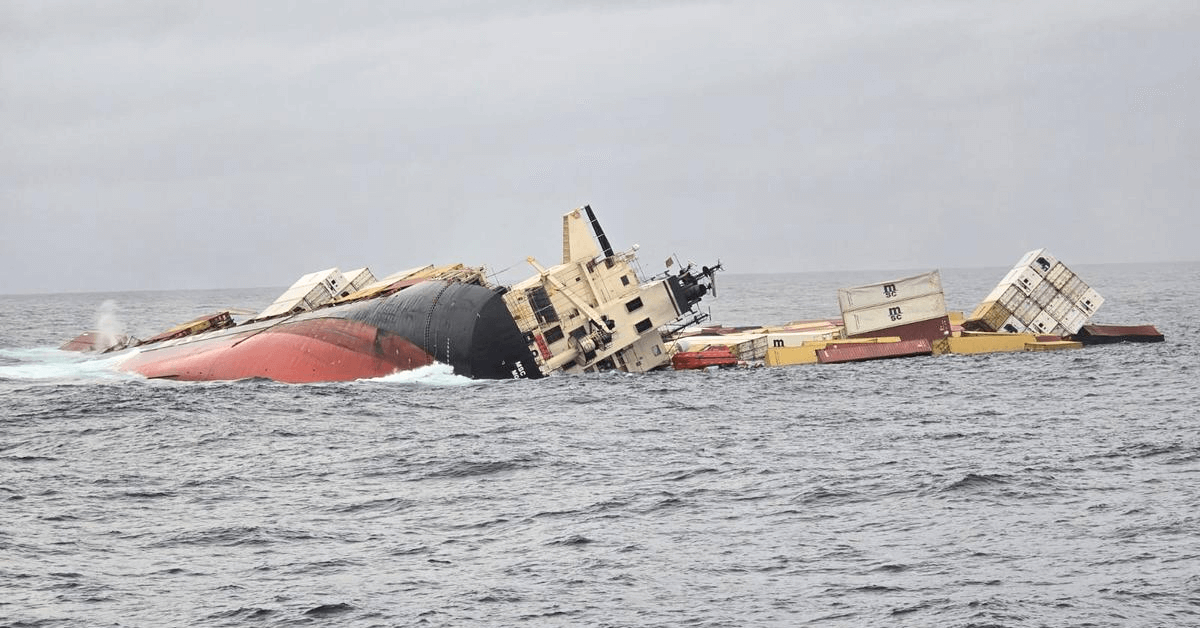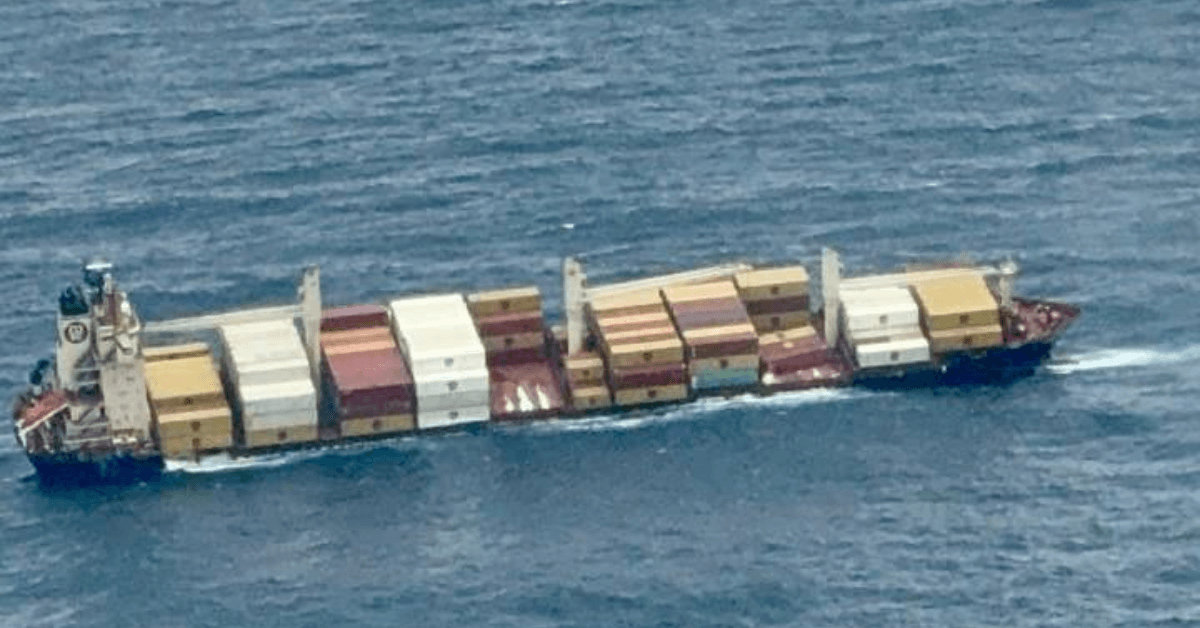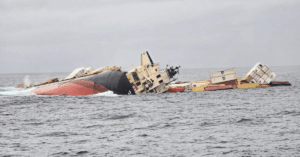
U.S. Navy Sailor Convicted Of Selling Secrets To China For $12,000
August 22, 2025
Fresh US, UK Sanctions Target Firms, Vessels, & Individuals Facilitating Iran Oil Trade
August 22, 2025

The effort to remove fuel from the wreck of MSC Elsa 3 in the Arabian Sea has entered a decisive stage with saturation diving operations now underway, according to India’s Directorate General of Shipping (DGS).
The operation began on August 20 at the wreck site located about 14.6 nautical miles off the Alappuzha coast in Kerala, at a depth of 51 metres (167 feet).
Specialised divers, supported by advanced Diving Support Vessel (DSV) Southern Nova, have started the process of pumping out the remaining fuel. The DGS said that the diving phase has been launched despite difficult underwater conditions.
Additional support has been deployed, including the vessel Offshore Monarch to assist the DSV, and the tug Canara Megh to enforce a one-nautical-mile exclusion zone around the site and ensure safe operations. Fishermen have been barred from entering the area while the extraction continues.
The salvage plan was prepared by SMIT Salvage, a specialist firm engaged by the vessel’s owners Mediterranean Shipping Company (MSC) and their Protection and Indemnity insurer North Standard. SMIT replaced an earlier salvage contractor for this phase.
The plan sets a tentative completion date of September 25, 2025, although officials say that the timeline remains subject to weather and sea conditions. Operations had previously been suspended on July 12 due to the southwest monsoon.

At the time of its sinking, the vessel was carrying about 450 metric tons of fuel, including around 85 tons of diesel and the rest Very Low Sulfur Fuel Oil (VLSFO). Small amounts of oil were seen on the sea surface after the sinking but dispersed naturally with sea conditions.
The DGS confirmed that so far no major oil spills have been reported. However, environmental surveillance is ongoing with aerial, coastal, and satellite monitoring carried out in coordination with the Indian Coast Guard and state pollution control authorities. Response equipment is kept ready in case of any spill during the extraction.
The wreck also carried 650 containers, of which 66 containers and other debris have already washed ashore on the Kerala coast and were safely removed by the Marine Emergency Response Centre (MERC) team appointed by the owners. Sri Lanka, hundreds of miles away, has also reported debris reaching its shores.
One of the most serious outcomes of the casualty has been the release of large quantities of plastic pellets. Cleanup operations along the Kerala and southern Tamil Nadu coasts have been supported by more than 500 volunteers per day, and so far, 655 tons of plastic nurdles have been collected and segregated for disposal.
The state of Kerala has filed claims worth $1 billion for environmental and livelihood damages, leading Indian courts to detain five MSC containerships during port calls as security. Four of the ships have since been released after bonds were posted, but the MSC Akiteta II has remained detained for over a month.
Reference: newindianexpress
Source: Maritime Shipping News


